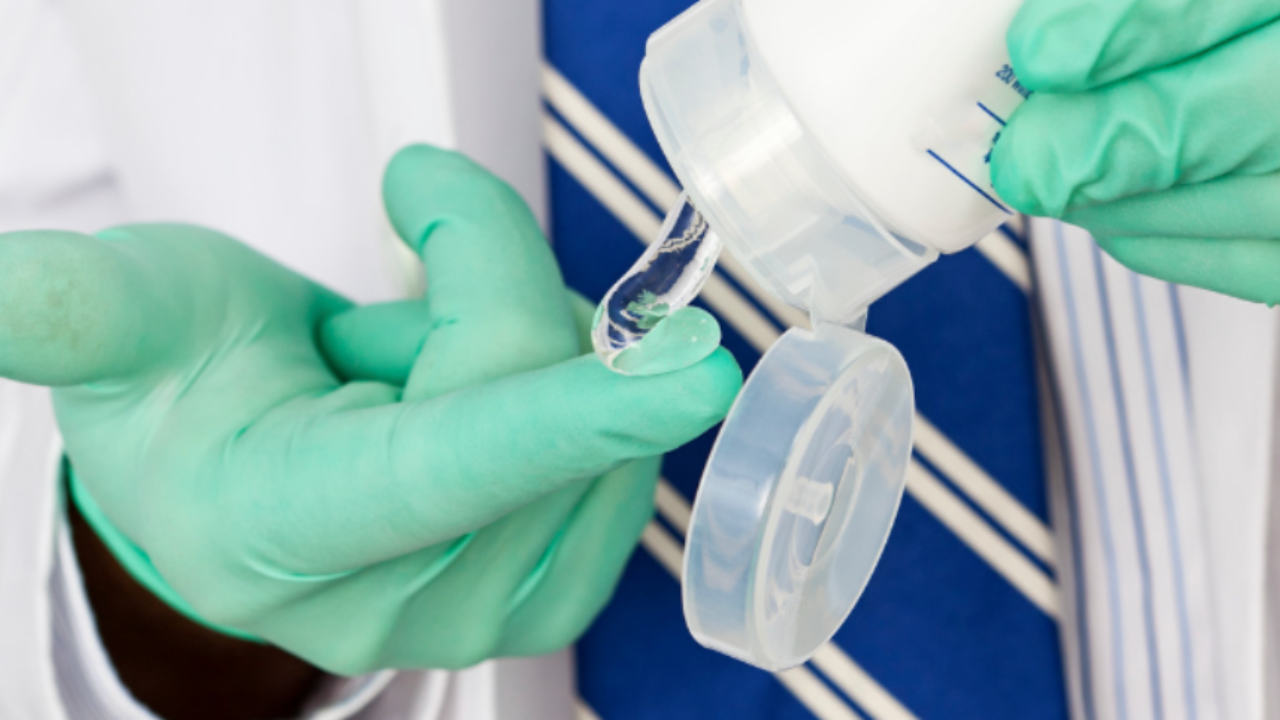Lubricants and Healthy Vaginal Tissues
Apr 28, 2023
By Dr. Mal James, DPT, PT
If pelvic pain, dryness, or friction have you wanting to slip into something more comfortable, look no further. We’re diving deep into the details of how vaginal tissue, persistent pain, and lubricants all come together! (Okay, no more puns, I swear.)
The best lubricant should have:
-
Bio-neutral pH
-
Natural vaginal pH is around 4.5, close to neutral on the pH scale. If a lubricant makes the vaginal canal more basic or acidic, it can affect the microflora (i.e. friendly bacteria) and increase risk of bacterial vaginosis or other pelvic infections
-
Low osmolality
-
Osmolality (or how much “stuff” is dissolved within the lubricant) greater than 1200 mOsm/kg can cause damage to the vaginal epithelium, our most superficial tissue layer, by pulling water from the tissue and drying out the cells, leading to weakened tissues and microtears that increase risk of exposure to STD/STIs and HIV
-
No added fragrances
-
added fragrance is a common allergen, and can lead to inflammation and irritation of the vaginal tissues
-
Paraben-free
-
meant to increase shelf life and ward off bacteria or fungi, but can also disrupt the good bacteria and lead to an increased risk of infections, especially overgrowth of Candida, which can be very hard to manage and become chronic in nature
For women who are experiencing tissue dryness related to hormonal changes such as menopause, hysterectomy, or some types of cancer treatments, a prescribed estrogen cream can increase tissue hydration and protect from irritation and microtears. Some people may be unable or reluctant to use estrogen cream. For those who are breastfeeding, it is very common to have increased dryness and irritation for as long as you are breastfeeding. Especially in these situations, a lubricant that provides moisture and reduces irritation can help you feel more comfortable during intimacy with a partner or self. Water-based lubricants are often the most used and most affordable options, but if you are in a relationship that does not require to use of a condom, oil-based or natural lubricants like aloe vera lubricant or even olive oil can provide more protection and hydration to the tissues for a longer period of increased glide and comfort.
Based on the parameters of low osmolality, neutral 4.5 ph, and limited bells and whistles like flavoring, warming/cooling chemicals, colorings, or fragrances, here are some of my most recommended lubricants:
Water-based:
- Good Clean Love
- Good Clean Love Ultrasensitive
- Desert Harvest Aloe Vera Personal Lubricant
- Sliquid Organic
- Sliquid Natural
Oil-based or Hybrid for longer lasting “wet” feel:
- EroSense (aloe based)
- Oasis Silk (hybrid lubricant, marked as safe for use with latex condoms/barriers)
- Sliquid Silk (aloe-based)
In our webinar on pelvic pain, Dr. Mal discusses how pain and the central nervous system interact. If you are struggling with irritation and inflammation of the vaginal tissues or have a diagnosis like interstitial cystitis or painful bladder syndrome, the nervous system may kick into overdrive potentially leading to hypersensitivity to touch, muscle guarding, and flares of bowel or bladder dysfunction. Taking care of the physical tissues with products that nourish, create glide, and reduce risk of micro tears may help prevent repetitive pain exposures and put your nervous system more at ease with the area in question. There are many culprits when it comes to pelvic pain, so if you are experiencing new pelvic pain or irritation, it’s important to reach out to your medical doctor to rule out any infection or other causes of pain.
There is no long term research concerning how exposure to lubricants can affect vaginal tissue over time. For most people, the lubricant with the simplest ingredients and most like true physiology tends to be the best option!
Resources:
Potter N, Panay N. Vaginal lubricants and moisturizers: a review into use, efficacy, and safety. Climacteric. 2021 Feb;24(1):19-24. doi: 10.1080/13697137.2020.1820478. Epub 2020 Sep 29. PMID: 32990054.
